5 Reasons You Should Take a Gap Year

Is it Necessary to have an Experience of a Gap Year?
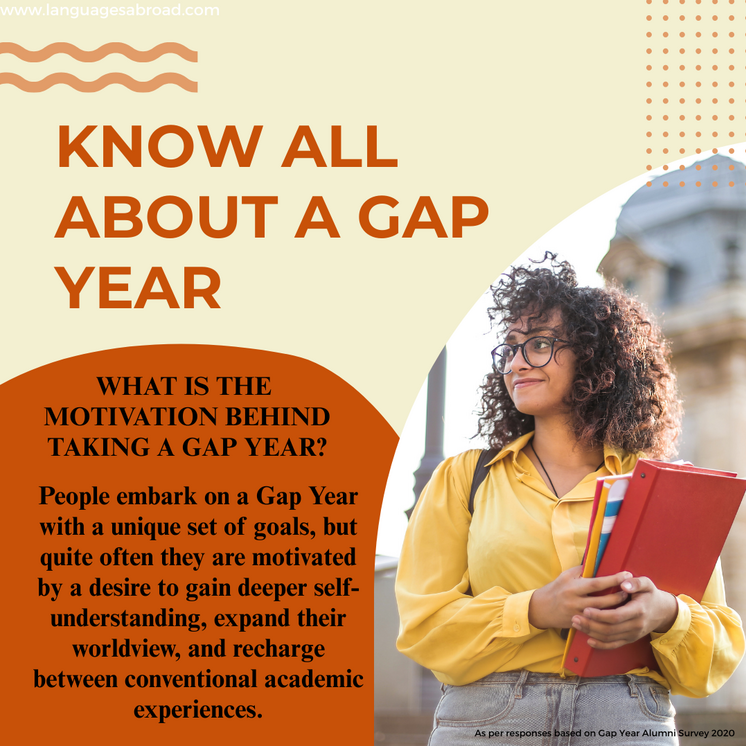
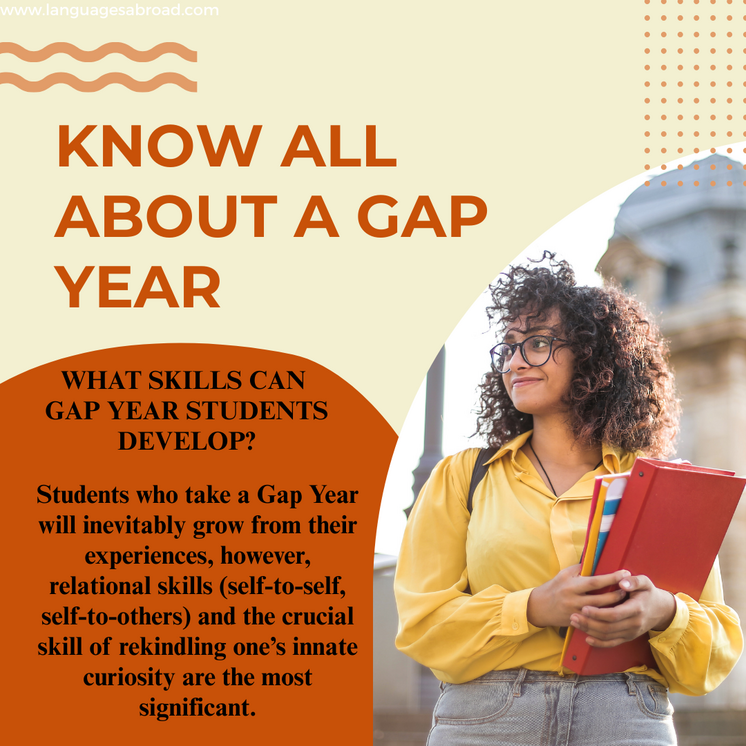
What is a Gap Year?
The concept of a gap year first gained popularity in Europe and the United States. It usually refers to young people taking a year off before starting university - often to travel, volunteer, or explore new experiences. Some take a gap year because they want time to reflect on their future and gain practical experience in the "real world." Universities typically allow students to defer their admission during this period.
A gap year is about more than simply taking time off. It's a deliberate choice - a chance to step away from the familiar, rethink personal direction, and make new plans. During this pause, students often set fresh goals, and by the end, many feel they have grown into different people.
What Can a Gap Year Offer You?
A gap year will not transform your life overnight. If you expect it to magically turn you into a billionaire, you'll be disappointed. But if your aim is to understand yourself better, then it can be an invaluable experience.
Taking this year can give you a greater sense of control over your life. It allows you to slow down, reduce stress, and ask yourself questions like: "What else can I do?" This kind of reflection-what we might call "quiet planning"-works best when you are at peace and free from constant pressure.
Will a Gap Year Shape the Rest of Your Life?
Many people worry about what comes after their gap year. Should they return to their old routines? Or should they pursue a completely new path? For most, this year is about discovering what they truly want, but it also comes with uncertainty. There are no guarantees, and you alone are responsible for the risks and choices you make.
If you are comfortable with a stable, routine nine-to-five job and prefer not to take risks, then perhaps a gap year is not for you. But if you crave more than an ordinary life, this break can help you reimagine your future.
In the end, no one else can make these decisions for you. Even if you spend your year traveling or enjoying life to the fullest, you will still have to ask yourself: "Is this the life I really want?"
And while you may one day feel frustrated by routine work, underappreciated efforts, or unfairly distributed rewards, you may also regret not taking the chance to pause, reset, and invest in yourself when you had the opportunity.
Voices from the Ground: Reddit Insights
- One user weighing a gap year vs. mechanical engineering studies shared the dilemma: financial strain vs. high-quality education-but parents were strongly against the delay. Reddit
Another expressed exhaustion and need for a break:
"To travel the world will broaden your horizons…" supported by a father's friend Reddit.
A story of overcoming indecision:
"...she told me it was the most excited/relieved she's felt in a long time... worst that can happen... is confidence, growth, and knowing herself more" Reddit.
What Industry Leaders Say
- Europe: Gap years are culturally normalized, structurally supported, and widely seen as a developmental tool.
- North America: Growing acceptance, especially with nonprofits and awareness campaigns-though still less embedded in educational culture.
- Employers: Many value gap year experiences, seeing them as equivalent to degrees in some cases.
- Students: Gain maturity, direction, adaptability, and renewed motivation-with tangible benefits in academics, career clarity, and well-being.
- Corporate & Adult Spaces: Gap years, or sabbaticals, are increasingly recognized for mental health and retention benefits-provided they're well-managed by organizations.
Common Times to Take a Gap Year
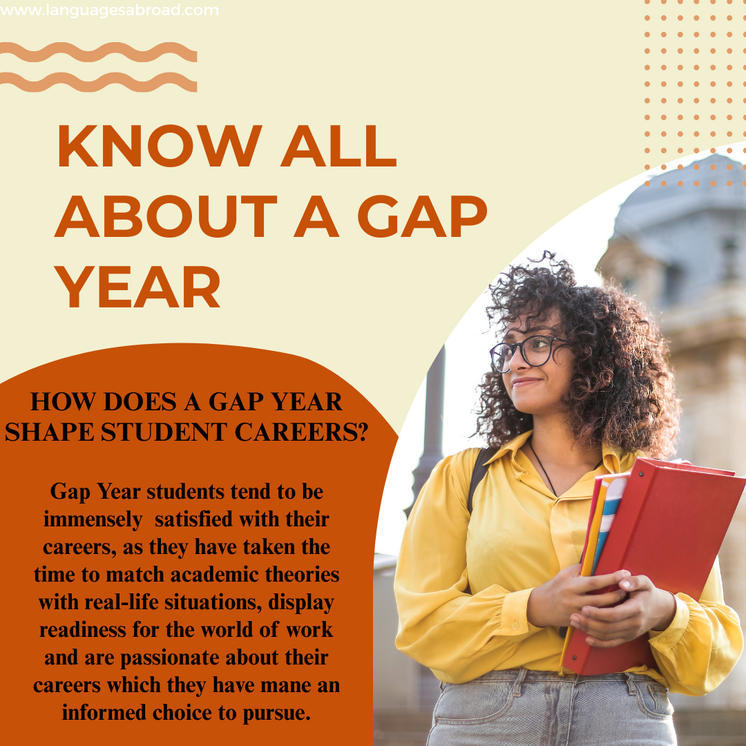
1. After High School
A gap year after high school is perfect if you're not ready to jump straight into college. It gives you the freedom to travel, volunteer, or work without academic pressure, while helping you explore your identity and passions before committing to higher education.
2. During College
Many students take a gap year in the middle of college to reassess goals, reduce burnout, and gain real-world experience. When you return, you may find yourself more focused, motivated, and open to new directions in your studies and career path.
3. After College
This is one of the most popular times for a gap year. Before diving into the workforce, graduates often use this period for personal growth, internships, cultural exchange, or travel. It's also a great resume builder, highlighting skills like independence, adaptability, and cross-cultural communication. Sometimes, it even leads directly to career opportunities.
4. Mid-Career / Professional Gap Year
Though less common, a professional or mid-career gap year can be transformative. It allows adults to pursue sabbaticals, career changes, or upskilling while enjoying the flexibility that comes with more financial stability. With a clearer vision of what they want, professionals often use this time for travel, leadership development, or passion projects.
Resources Available for Gap Year Students

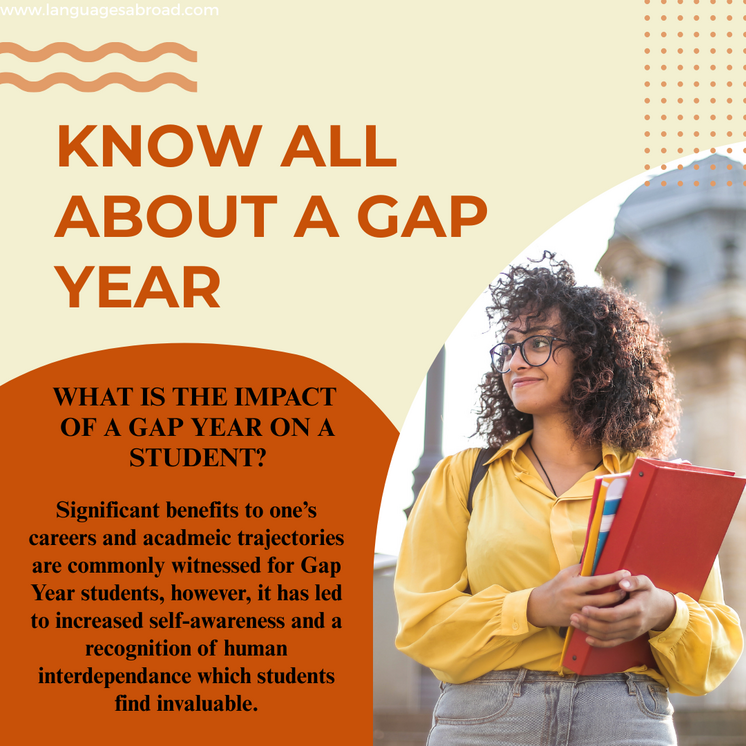


Taking a gap year doesn't have to be expensive or limited to those with big budgets. While some structured programs can cost a lot, many offer need-based financial aid. You can also design your own affordable gap year by working, doing paid internships, or volunteering close to home. Some service programs, like AmeriCorps' City Year, even cover living expenses through stipends.
If you're interested in formal programs, the Gap Year Association lists accredited options, and events like the USA Gap Year Fairs connect students with organizations directly. Independent consultants can also help guide you.
For high school seniors thinking about deferring college, it's best to explore gap year options by May or June and check each school's specific policies and deadlines, since not all colleges treat gap years the same.
Other Resources Available for Gap Year Students
1. Financial Resources: Scholarships & Grants
- Gap Year Association (USA) - offers a searchable database of gap year scholarships from partner programs.
- EF Gap Year Scholarships - financial aid up to $10,000 based on need and merit.
- GoAbroad & GoOverseas Scholarships - competitive awards for travel, volunteering, or study abroad.
- Rotary International Youth Exchange - subsidized cultural exchange opportunities.
- European Solidarity Corps (EU) - covers travel, accommodation, food, insurance, and pocket money for volunteering projects across Europe.
UK - Year Out Group partners often provide bursaries for volunteering & service-based programs.
Country-Specific Aid
- Germany - FSJ (Freiwilliges Soziales Jahr) and BFD (Bundesfreiwilligendienst) provide stipends for volunteer service.
- France - Service Civique provides monthly allowance (~€600) for young people in public-interest projects.
- USA/Canada - AmeriCorps provides stipends + Segal Education Award (up to $7,395 in 2025) for service, usable toward tuition.
2. Educational Resources: Gap Year Programs
- CIEE Gap Year Abroad - study, internships, and service-learning worldwide.
- Global Citizen Year - immersive leadership development year abroad.
- Outward Bound (USA, UK, EU) - outdoor learning, resilience, and leadership training.
Think Pacific (Fiji & Asia-Pacific) - structured volunteering with academic credits.
Online Learning
- Coursera, edX, Udemy - discounted or free certifications (many recognized by universities/employers).
- LinkedIn Learning - access to professional development & career readiness courses.
MIT OpenCourseWare & Harvard Online - free academic enrichment during the gap year.
College Partnerships
- Some U.S. universities (e.g., Princeton, Tufts, UNC) offer "bridge year programs" with sctured global experiences.
- Many colleges now defer admission to allow students to pursue structured gap years.
3. Career & Mentorship Resources
- Gap Year Association Mentorship - links students with alumni and professionals.
- Intern Abroad HQ / AIESEC - internships in sustainability, business, healthcare, etc.
- Remote Internships (Virtual Internships, The Intern Group) - online placements while traveling.
- Volunteer World & Idealist.org - curated international volunteering & career service opportunities.
4. Well-Being & Safety Support
- ISIC (International Student Identity Card) - discounts + insurance options.
- STA Travel (reborn in 2023 in parts of Europe) - youth-focused travel discounts.
- Travel insurance providers (World Nomads, SafetyWing) with gap year packages covering long stays.
- Mental health support:
- Jed Foundation (U.S.) - student mental health support.
- Mind (UK) - counseling resources for young travelers.
5. Global Volunteering & Development Opportunities
- UN Volunteers (Online Volunteering & Youth Assignments) - free and globally recognized.
- Peace Corps (USA) - 2-year service commitment with stipends, loans deferment, and career benefits.
- Earthwatch & WWF Youth Programs - field-based conservation projects.
- Teach English Abroad (via TEFL programs) - many provide stipends + accommodation.
6. Networking & Community
- Reddit r/gapyear - peer-to-peer advice and opportunities.
- Facebook Groups: "Gap Year Travelers," "Gap Year & Backpacking Europe," etc.
- Youth for Europe (EU-based platform) - connects students with funded projects.
- National Gap Year Associations:
- USA - Gap Year Association.
- Canada - Canadian Gap Year Association (CanGap).
- UK - Year Out Group.
- EU - Erasmus+ and European Solidarity Corps.
What the Latest Data and Findings Say about a Gap Year - Yay or Nay?
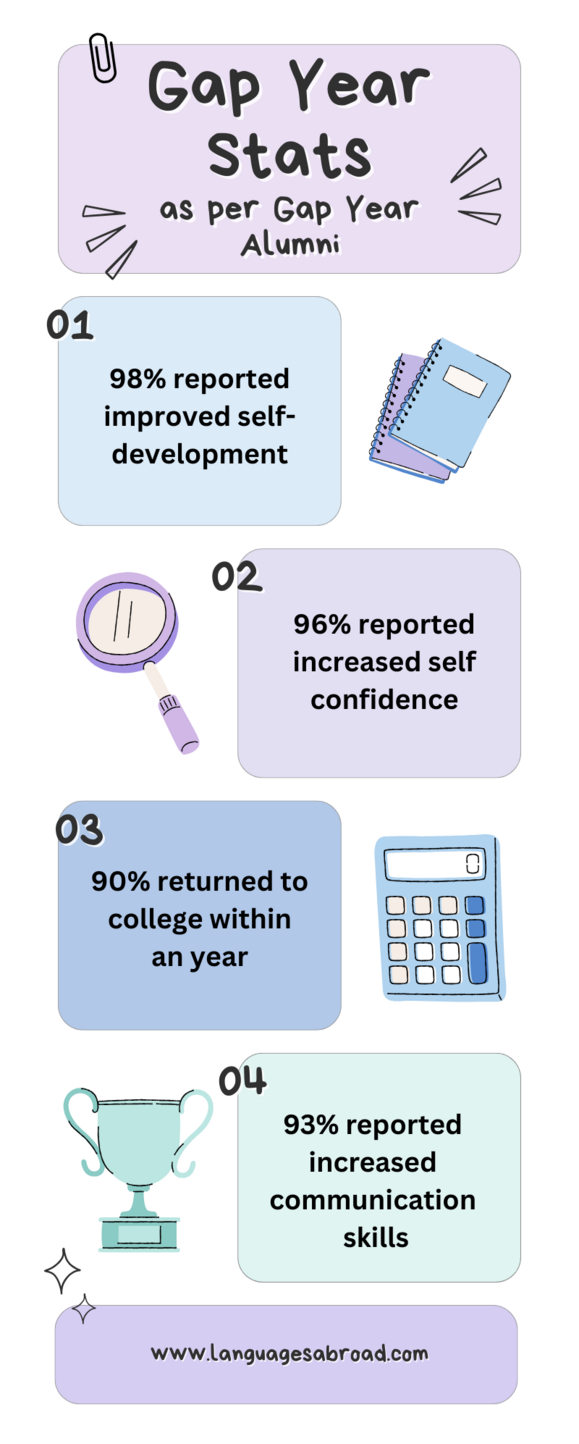
Here's the latest data and expert insights (as current as mid-2025) on gap years-covering student outcomes, employer attitudes, and personal growth-alongside a notable expert quote to give some real-world perspective:
ZipDo Education Report (May 30, 2025)
- 65% of employers view gap year experiences positively during hiring ZipDo.
- Students taking gap years are 15% more likely to graduate from college within four years ZipDo.
- 45% take a gap year primarily for life experience over academics ZipDo.
- 25% received college scholarships thanks to their varied experiences ZipDo.
- 55% choose volunteer work during their gap year ZipDo.
Gap Year Benefits Statistics - WifiTalents (June 1, 2025)
- 52% reported improved academic performance afterward WifiTalents.
- 45% experienced increased self-confidence WifiTalents.
- 62% felt more prepared for college WifiTalents.
- 83% experienced increased cultural awareness WifiTalents.
- 70% of employers value gap year experience when hiring WifiTalents.
- 80% of students felt enhanced problem-solving skills; 78% gained independence; 81% felt better prepared for future challenges WifiTalents.
- 91% would recommend a gap year to others WifiTalents.
Market Size Insights - GrowthMarketReports (2024 Data)
- Europe leads the gap year programs market, generating about USD 1.16 billion in 2024 Growth Market Reports.
- North America ranks second with USD 980 million, projected to grow at a CAGR of 8.7% through 2033 Growth Market Reports.
Expert Voices & Quotes
Adam Savage (former MythBusters host, via Business Insider-April 2025)
Savage emphasizes that gap years offer students vital clarity beyond the educational pipeline:
"One of my sons took a gap year, and went and worked production in Los Angeles… he got the full life experience at 18."
"When you've had a little life under your belt, I think school means a fundamentally different thing…"
He suggests that practical experience can give education deeper meaning and readiness Business Insider.
Shawn VanDerziel (President & CEO, NACE-May 14, 2025)
Although addressing internships and experiential learning broadly, his insights strongly support the value of real-world experience:
"Gen Z professionals who took part in experiential learning … have higher salaries on average, are more likely to say their career has progressed faster than they expected, and are more satisfied overall with their careers than those who didn't."
His study found average salaries of USD 59,059 for experiential learners versus USD 44,048 for non-participants Default.
How to Take a Gap Year: A Step-by-Step Guide



So, you've decided to take a gap year-great choice! Now comes the fun (and important) part: planning. From figuring out your goals to choosing a destination and creating a budget, here's how to get started.
1. Define Your Budget, Timeline, and Goals
A successful gap year requires thoughtful planning. Before booking flights or signing up for programs, ask yourself:
- What is my budget for travel, accommodation, and daily expenses?
- How long do I want my gap year to last?
- What are my goals-personal growth, career experience, cultural immersion, or adventure?
- Do I have dependents or responsibilities at home to plan around?
- If I'm a college student, can I defer admission, scholarships, or financial aid?
- If I'm working, can I request extended leave, or will I need to resign?
- What skills do I want to learn or improve during this time?
Having clarity on these questions will help shape every other decision.
2. Choose Your Destination
Travel is often the highlight of a gap year, but it doesn't have to mean going abroad-many students find meaningful experiences in their home country too. If you're looking overseas, consider:
- Language skills: Do you want to practice a language you already know, or learn a new one through immersion?
- Visa requirements: Which countries can you legally visit, and for how long?
- Health and safety: Are there any travel restrictions, vaccinations, or safety concerns?
- Budget: What destinations align with your cost of living and travel funds?
- Activities: Are you more interested in cultural hubs, volunteer work, internships, or adventure travel?
Pro tip: Budget travelers often explore South America, Southeast Asia, or Europe, but there are excellent gap year opportunities worldwide.
3. Decide How to Spend Your Gap Year
Gap years can be as structured or flexible as you like. Options include:
- Language immersion programs to sharpen communication and cultural skills.
- Volunteering abroad in education, conservation, or community development.
- Internships or work placements to gain professional experience.
- Adventure travel-backpacking, outdoor expeditions, or cultural exchanges.
- Blended experiences, combining volunteering, study, and travel.
Remember: there's no single "right" way-your gap year should align with your interests, passions, and long-term goals.
4. Budget and Apply for Scholarships
Gap years can be affordable with the right planning. Explore funding options such as:
- Scholarships and grants from gap year program providers.
- School financial aid transfers (if the program includes academic credit).
- Work exchange opportunities (like teaching English, au pair jobs, or hostel work).
- Travel scholarships for international students and volunteers.
Combining personal savings, scholarships, and part-time work abroad can make your gap year both enriching and budget-friendly.
With the right planning, your gap year can be a life-changing mix of personal growth, cultural immersion, career development, and adventure.
Pros of a Gap Year
A lot of students tend to suffer from 'information overload,' and exhaustion after completing high school, which is also a huge reason to take an year off as it can reduce the academic burnout and recharge one's academic battery.
One of the significant benefits of taking a Gap Year, besides others, is that the student gets an opportunity to refresh his/her system and get a renewed energy which he/she will utilise to face the next phase of education.
Also, this year helps in developing self confidence and maturity in students, which in turn leads to better decision-making and risk-taking skills.
A gap year also provides ample time for the high school leaver to conduct a thorough university search where he will look for the right institution which offers the course that he wants to engage himself in. The year off presents the school leaver with a chance to find the academic forte that he/she is most comfortable with. While enjoying a gap year, the school leaver will decide on what he or she wants to major in and this in turn will help them become more focused and dedicated when joining university.
Even top level universities are encouraging school leavers to take a year off since they reckon that such students bring good values to the institution since they have had a taste of 'outside life' and will have a serious perspective towards life.
1. Gain Real-World Experience

One of the key benefits of a gap year is the opportunity to venture outside of traditional academic environments and dive into the real world.
Whether you choose to volunteer abroad, intern with a local company, or work part-time to build up your savings, a gap year allows you to develop practical skills that employers value.
Experiences like managing your own budget, navigating new cities, or collaborating with people from different backgrounds all build empathy, maturity and adaptability.
These soft skills often give gap year students a noticeable advantage when they eventually apply for jobs or graduate programs.
2. Travel and Discover New Cultures

A gap year serves as the perfect opportunity to see the world. Traveling during this time allows you to immerse yourself in new cultures, try new cuisines, learn languages, and broaden your worldview.
Unlike short vacations, extended travel gives you time to live in a place, interact with locals, and truly understand different ways of life.
A gap year in a new country allows you to engage with local communities, learn new languages, and try different cuisines. Not only is travel exciting, but it also fosters independence and cultural awareness - qualities that make you stand out both personally and professionally. Many students return from their gap year with a renewed sense of curiosity, creativity, and resilience.
3. Clarify Your Goals and Direction

It's common for students to feel uncertain about which major to choose, which career path to follow, or which passions to pursue. Jumping straight into college or the workforce without clarity can sometimes lead to burnout or regret.
Taking a gap year gives you the breathing space to reflect on what you truly want. Whether you spend the year exploring different fields, shadowing professionals, or simply stepping away from academic pressure, you'll return with a clearer sense of purpose.
Several students who take a gap year report feeling more motivated and confident about their future choices. A gap year truly helps you discover your calling and take meaningful and informed decisions in the future as well.
4. Improve Your Mental Health and Well-Being

The students of the present generation face intense academic pressure, social expectations, and the stress of planning their future.
A gap year can act as a much-needed reset button. By taking time to focus on your mental health, hobbies, and personal growth, you can avoid academic burnout and return to school or work with renewed energy.
Activities like mindfulness retreats, outdoor adventures, or even pursuing creative projects can reduce stress and improve overall well-being. A healthier, more balanced mindset not only helps in academics but also supports long-term success in life and career.
5. Build a Stronger Resume and Stand Out

Contrary to the myth that a gap year looks like "wasted time" on a resume, it can actually make you more competitive. Employers and admissions officers often see gap year students as more independent, adaptable, and resourceful and want candidates equipped in soft areas like leadership and communication.
Whether you volunteer, travel, or gain work experience, the stories and skills you collect during your gap year can set you apart from the crowd.
Be it job interviews or college applications, being able to discuss real-world challenges you've faced demonstrates resilience and initiative-qualities every organization values. Also, it is a testament to your risk-taking abilities that you had the courage to venture out into the unexplored, away from the traditional settings, and have broadened your horizons in myriad ways that a typical student or worker may not have.
Cons of Taking a Gap Year

While a gap year can be refreshing and give school leavers time to reflect, it's not always smooth sailing. If it's poorly planned, a gap year can actually backfire and hurt both personal growth and career progress.
One of the biggest pitfalls is lack of planning. Without a clear schedule or goals, students can easily waste the entire year without gaining any meaningful experience. Instead of being productive, it becomes a lost opportunity.
Another concern is finances. Traveling or taking part in programs can be costly, and without careful budgeting, students may burn through their savings. In some cases, they might even struggle to afford university afterwards. To make matters worse, tuition fees often increase each year, so delaying enrollment can make higher education more expensive. As William (2000) points out, students might also lose out on competitive university courses if they step away at the wrong time.
There's also the risk of losing academic momentum. After a year away from studying, some students find it hard to adjust back to the classroom routine. This can lead to lower motivation, extended time in college, or in some cases, dropping out altogether (Sanjou, 2008). Watching their peers move ahead academically while they feel "stuck" can be discouraging.
A gap year can also impact personal habits and skills. Instead of building independence, some students rely on companies that organize trips for them. While convenient, this means everything is planned out, which may reduce opportunities to build self-confidence and problem-solving skills (College Confidential, 2010).
And then there's the freedom factor. For many, a gap year is their first real taste of independence. It's fun-but it can also make it harder to return to the structure of university life. Eunson (2008) warns that some students find it difficult to "come back to reality" after enjoying so much freedom, and this may even prevent them from returning to university altogether.
Finally, taking a year off often means a delayed career start. The later you begin university, the later you graduate-and the later you start earning. While a year may not sound like much, it can affect long-term financial and career plans.
Presented below is data on the cons of a gap year and the kinds of cons encountered by students and employers alike.
Gap Year Disadvantages - WifiTalents (June 2, 2025)
- 30% of students felt unprepared for college afterward WifiTalents.
- 35% reported delays in graduation timelines WifiTalents.
- 40% of employers believed students who took a gap year lacked maturity WifiTalents.
- 20% never resumed their education WifiTalents.
- 18% regretted their gap year, citing academic momentum loss WifiTalents.
Final Thoughts: Should You Take a Gap Year?
Taking a gap year is not a one-size-fits-all solution-it comes with both opportunities and challenges. For some, it's a transformative break that fosters resilience, independence, and a clearer sense of purpose. For others, poor planning or financial strain can turn it into a setback. What's clear, however, is that a gap year has the potential to be far more than "time off."
When approached with intention, it becomes an investment in self-discovery, mental well-being, and future readiness. Whether you use the time to travel, work, volunteer, or simply pause to reflect, the lessons you gain often extend well beyond the classroom. Ultimately, the decision rests on your goals, resources, and willingness to take ownership of your journey.
If you choose wisely and plan carefully, a gap year can be one of the most rewarding chapters of your life.


